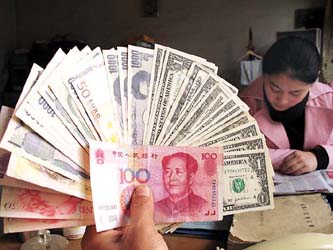Yuan value in spotlight during Paulson's visit
Updated: 2007-07-26 11:01

US Treasury Secretary Henry Paulson will arrive in China for a fourth time next week, meeting with Chinese leaders for talks on economic and trade issues, his office announced on Tuesday.
The visit comes as the US Congress has renewed pressure on US President George W. Bush over a revaluation of the yuan.
"This trip is part of an ongoing process of strengthening our strategic economic relationship to address long term issues such as working with China to rebalance its growth and increase the flexibility of its currency, and also addressing short term issues as they arise," said Paulson in a public statement.
He is scheduled to travel to Beijing next Tuesday, meeting with President Hu Jintao and Vice-Premier Wu Yi to raise issues of concern to the US congress, as well as following up on areas in need of action identified at the last meeting of the Strategic Economic Dialogue (SED) in Washington in May.
President Hu and his US counterpart George W. Bush launched the China-US SED last year in order to provide a focused and effective framework for addressing issues of mutual concern. The first meeting was held in Beijing last December.
The Bush administration is coming under fresh pressure from Congress to show results from the SED discussions, particularly in currency values.
It has been reported that the US Senate Finance Committee will begin drafting legislation tomorrow that is intended to increase pressure on China to let its currency rise in value.
The proposals the committee aims to turn into legislation were unveiled last month by four US senators acting after the Treasury Department declined to name China a currency manipulator in a semiannual report on the currency practices of key trade partners.
Analysts have welcomed Paulson's visit as an opportunity to maintain positive dialogue with Chinese authorities, and improve the chance of solving trade disputes.
Guo Tianyong, a banking professor with the Central University of Finance and Economics pointed out that China has granted foreign banks more freedom and promoted broader participation by foreign players in the financial market.
"The greater freedoms foreign banks enjoy is a sign of China's willingness to open up its financial industry," Guo recently wrote, adding that the promotion of foreign players in the financial market was a concession reached through trade negotiations with the US.
Guo said he expected China to continue to push forward currency reforms in an active, gradual and controllable manner.
|
|